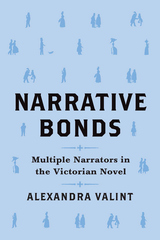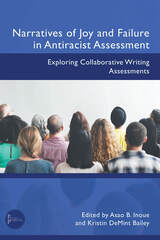4 books about Chaim Weizmann
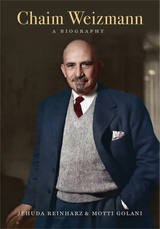
Chaim Weizmann
A Biography
Jehuda Reinharz and Motti Golani
Brandeis University Press, 2024
A magisterial biography of Israel’s first president.
In Chaim Weizmann: A Biography, Jehuda Reinharz and Motti Golani show how Weizmann, a leader of the World Zionist Organization who became the first president of Israel, advocated for a Jewish state by gaining the support of influential politicians and statesmen as well as Jews around the world. Beginning with his childhood in Belorussia and concluding with his tenure as president, Reinharz and Golani describe how a Russian Jew, who immigrated to the United Kingdom in the early twentieth century, was able to advance the goals of Theodor Herzl, the founder of the Zionist Organization. Weizmann is also shown as a man of human foibles—his infatuations, political machinations, and elitism—as well as a man of admirable qualities—intelligence, wit, charisma, and dedication.
Weizmann, who came to the UK to work as a biochemist, was in regular communication with British political figures, including prime ministers Arthur James Balfour, David Lloyd George, Winston Churchill, and Ramsay MacDonald. He also met presidents of the United States from Woodrow Wilson to Harry Truman. His success in earning the support of British political figures helped lead to the Balfour Declaration, which advocated for a “national home” for the Jewish people in Palestine.
As the authors show in this authoritative account of Weizmann’s life, Weizmann was guided by the belief that “Zion shall be redeemed in justice,” a phrase that recurs often in his writings.
In Chaim Weizmann: A Biography, Jehuda Reinharz and Motti Golani show how Weizmann, a leader of the World Zionist Organization who became the first president of Israel, advocated for a Jewish state by gaining the support of influential politicians and statesmen as well as Jews around the world. Beginning with his childhood in Belorussia and concluding with his tenure as president, Reinharz and Golani describe how a Russian Jew, who immigrated to the United Kingdom in the early twentieth century, was able to advance the goals of Theodor Herzl, the founder of the Zionist Organization. Weizmann is also shown as a man of human foibles—his infatuations, political machinations, and elitism—as well as a man of admirable qualities—intelligence, wit, charisma, and dedication.
Weizmann, who came to the UK to work as a biochemist, was in regular communication with British political figures, including prime ministers Arthur James Balfour, David Lloyd George, Winston Churchill, and Ramsay MacDonald. He also met presidents of the United States from Woodrow Wilson to Harry Truman. His success in earning the support of British political figures helped lead to the Balfour Declaration, which advocated for a “national home” for the Jewish people in Palestine.
As the authors show in this authoritative account of Weizmann’s life, Weizmann was guided by the belief that “Zion shall be redeemed in justice,” a phrase that recurs often in his writings.
[more]
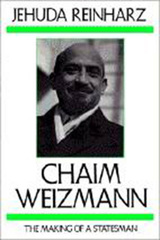
Chaim Weizmann
The Making of a Statesman
Jehuda Reinharz
Brandeis University Press, 1985
This massively researched, deftly written narrative follows Weizmann's life from the beginning of the First World War through some of his greatest triumphs--the Balfour Declaration, the founding of the Hebrew University of Jerusalem, and the British Mandate for Palestine. Like the first volume, The Making of a Statesman combines intimate detail with incisive analysis. Reinharz untangles the internal politics of the World Zionist Organization as he charts Weizmann's rise to prominence. We see Weizmann struggling with fellow Zionists over his pro-British policies and his increasingly authoritarian leadership. We see him as a persuader and diplomat, a charming figure who could win influence in elite British circles without downplaying his Jewish identity or heritage. Reinharz offers fresh insights into Weizmann's brilliance as a chemist. No other historian has ever explained Weizmann's scientific accomplishments and their ties to his Zionist diplomacy. Reinharz follows the difficult negotiations that produced the triumphant Balfour Declaration. He carries the story through Weizmann's work in Palestine to found a vibrant Jewish community. Weizmann's largely unsuccessful efforts to open a friendly dialogue with the Arabs are also fully explored. Chaim Weizmann was a towering figure of twentieth-century Zionism and the first president of the State of Israel. In every way, this monumental biography is worthy of this great statesman.
[more]
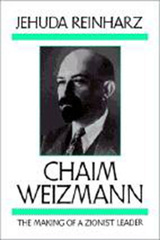
Chaim Weizmann
The Making of a Zionist Leader
Jehuda Reinharz
Brandeis University Press, 1985
In the pantheon of modern Jewish leaders, Chaim Weizmann is a giant. One of the founding fathers of the State of Israel and its first president, he was also a president of the World Zionist Organization, and an eminent chemist, for whom Israel's renowned Weizmann Institute of Science was named. Yet, until now, there has never been an authoritative biography of Weizmann that removed the layers of myth obscuring our image of the man. Both a personal portrait of a fascinating man and a far-reaching history of the Jews in the modern world, this book, written by one of America's leading authorities on Jewish history, delves into the factors that shaped Weizmann's personality and worldview. Though the book focuses on the making of Weizmann as a Zionist leader, it also lays the foundations for understanding his extraordinary achievements as a scientist. This volume, the first of two that will cover his entire career, ends when, at the age of 40, Weizmann is thrust onto the center stage of world politics as a major negotiator for the Balfour Declaration.
[more]
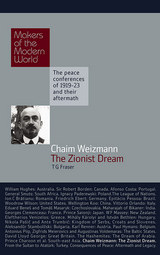
Chaim Weizmann
The Zionist Dream
Tom Fraser
Haus Publishing, 2009
The Arab-Israeli conflict has been one of the most defining features of recent world history, flaring up into open war fare yet again in Gaza at the end of 2008 and provoking large-scale demonstrations in the streets of cities across the world. The decision in 1919 by the Paris Peace Conference to award the Mandate for Palestine to Great Britain—which had announced its commitment to the creation of a national home for the Jewish people in the Balfour Declaration two years previously—sowed the seeds of this seemingly intractable problem, yet when the Zionist leader Chaim Weizmann (1874-1952) spoke before the Conference on 27 February 1919, he would have appeared as only one of the many representatives of minor nationalities putting their case to the peacemakers, and, what is more, one whose people had no territory of their own. How a Jewish chemistry professor from an obscure part of Eastern Europe could find himself at the heart of international diplomacy, and later become the first president of the State of Israel, is one of the most fascinating stories of the Paris Peace Conference and its aftermath. Ninety years after the Conference, what Weizmann said and did there is an essential part of our understanding of how this small, but critical, part of the world evolved out of the deliberations.
[more]
READERS
Browse our collection.
PUBLISHERS
See BiblioVault's publisher services.
STUDENT SERVICES
Files for college accessibility offices.
UChicago Accessibility Resources
home | accessibility | search | about | contact us
BiblioVault ® 2001 - 2025
The University of Chicago Press


